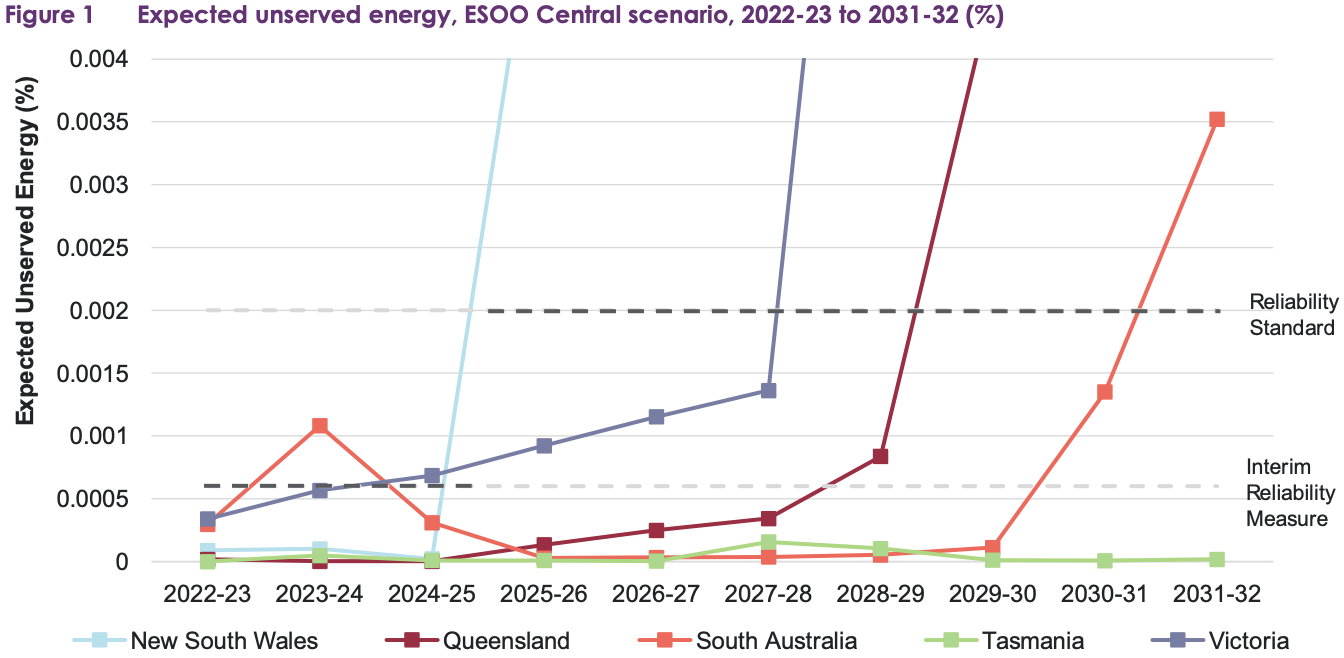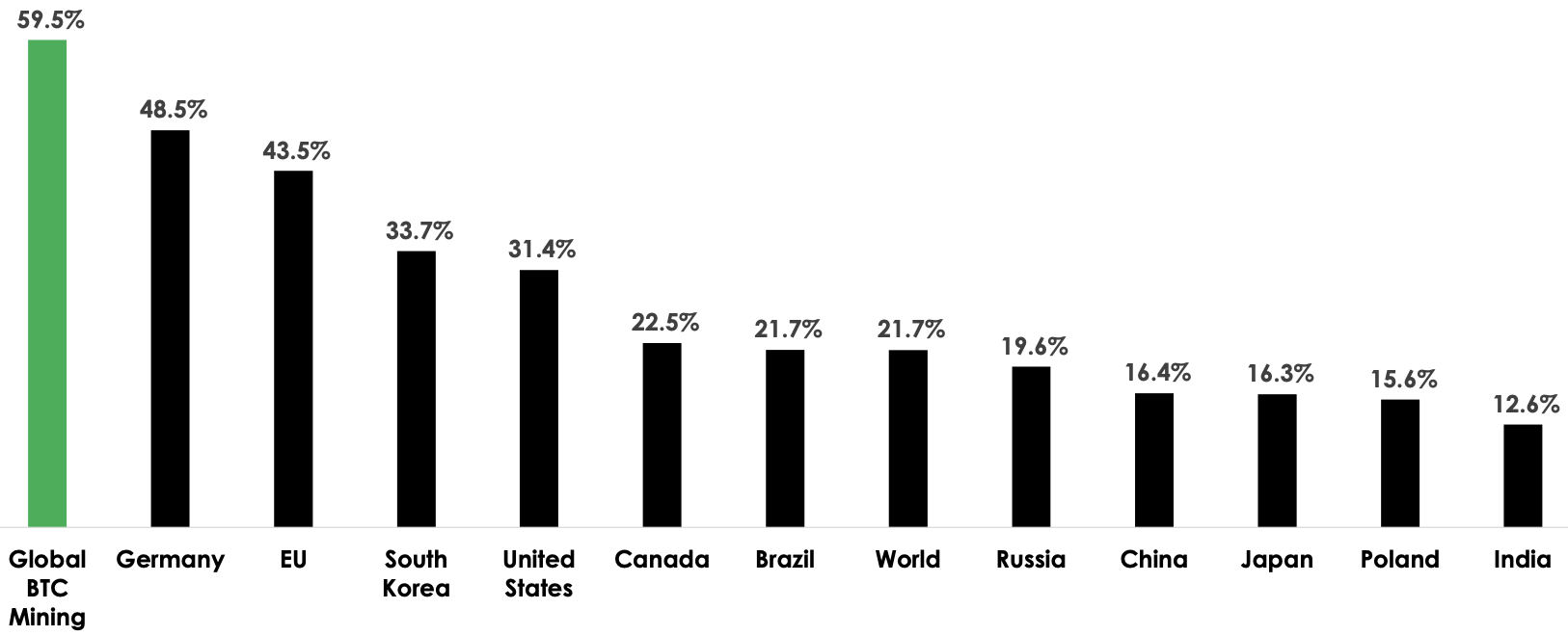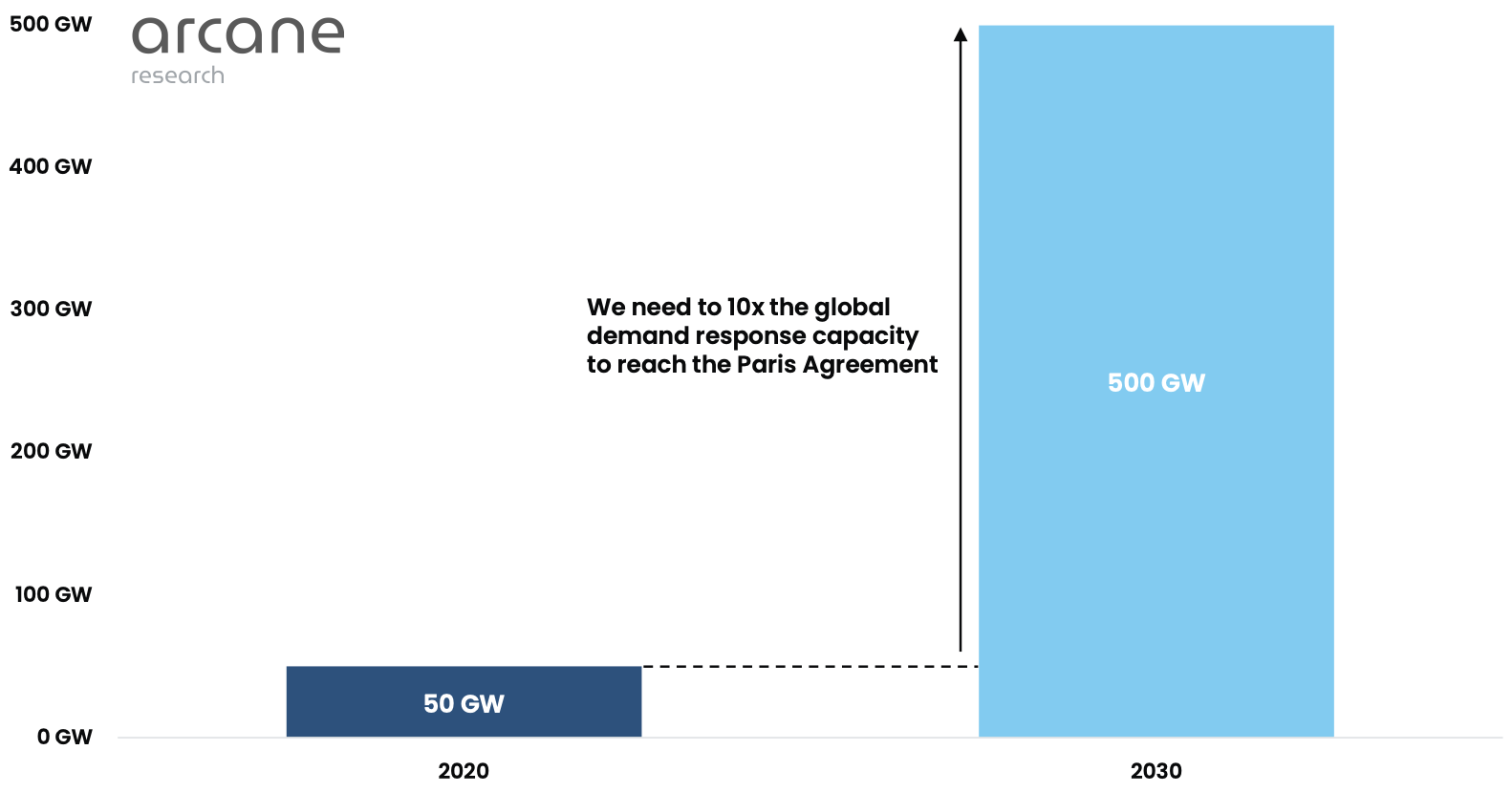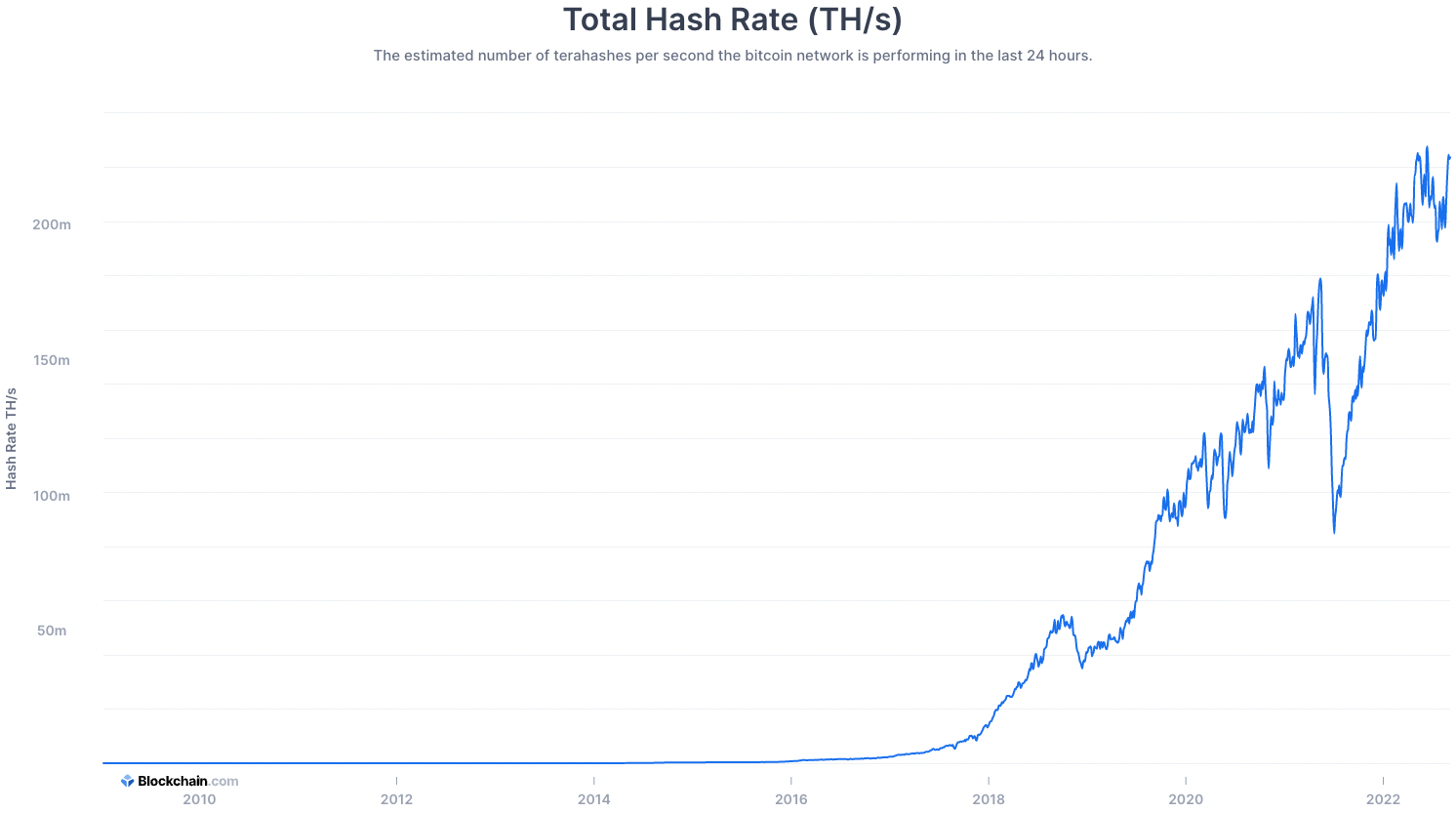Why Bitcoin could be an unlikely saviour for global electricity supply
The pendulum is beginning to swing in energy markets. Harsh lessons are being distributed across Europe as the reality of unreliable energy streams starts to bite. The cost for Europe is in the trillions of dollars.
In Australia we also face our own moment of truth. A ‘she’ll be right mate’ attitude isn’t going to wash when it comes to our promised 43% reduction in emissions by 2030. We will have to face up to the truth that we either consume less energy or massively scale up the nation's renewable energy infrastructure.
The energy regulator AEMO produces an excellent report annually about the state of the Australian grid. The 2022 report was out last week and it pulled no punches.
“Reliability gaps are forecast in all mainland regions in the next decade, based on existing and committed developments.”

You can see the spike in forecasted electricity shortfalls from 2024. The percentages are small but we are talking about blackouts here, so something unprecedented for most parts of Australia.
The pain of surplus
Perhaps the least understood issue the energy grid faces is the one of surplus energy. For much of the day across Australia, there is simply too much energy. As solar and wind generation is built out across the nation, that problem will get much, much worse.
As I write this article, QLD and NSW both have negative wholesale energy prices.
Indeed next year alone, 3GW of solar and wind energy comes online. Renewable energy power plant owners say that among their biggest problems is often being forced to curtail the energy production from their assets, in many cases by as much as 30 percent. They have to shut down production or even pay the grid to take their excess power.
If the sun is shining in Queensland, you can almost guarantee that the wholesale cost of energy will be negative during the day, because there is nobody to consume it.

Power costs are often negative across Australia during the day (Source: AEMO dashboard)
As I write this article, QLD and NSW both have negative wholesale energy prices. Energy consumption slumps during the day until everyone gets home from school and work. Who is going to use this excess daytime energy as more solar and wind comes online? As the renewable grid gets built out, where will the demand come from that bootstraps these energy projects?
Demanding a response
In Texas, they found a solution to this problem: Bitcoin mining. The common narrative would have you believe that bitcoin mining is universally bad for the environment but nothing could be further from the truth. It is the greenest of all industries because very often it is the only industry that can provide demand to renewable projects that would otherwise have none.
Supply is essential, but viable projects require demand at all times of day and bitcoin mining can provide it.

Percentage of renewable energy in consumption mix (Source: Bitcoin Mining Council 2022)
In essence it works like this: The miners turn on their machines and draw power like any other client. In situations like today in Australia, they would be powering away at full speed because there is a surplus of energy. But in summer when the air conditioning comes on and power demand surges, they respond by turning off their machines, and they get paid for providing this valuable flexible load to the grid.
That’s an extra 450GW of demand response which will cost in the order of $100 billion.
When demand is high, power prices can soar to astronomical levels. It is absolutely essential that there are industries that can simply turn off their consumption so that critical infrastructure can continue to operate. Supply is essential, but viable projects require demand at all times of day and bitcoin mining can provide it.

A 10 fold increase in demand response is needed by 2030 (Source: Arcane Research)
According to the International Energy Agency we need to increase demand response programs 10x by 2030 to reach the climate goals set out in the Paris Agreement. That’s an extra 450GW of demand response which will cost in the order of $100 billion. That sounds enormous but is only 0.1% of annual global GDP spread across the next eight years.
Australia’s share of this is likely proportionally larger because we are building renewable reliance and currently have very limited demand response.
Consumption for consumption's sake
One criticism of this approach is that mining bitcoin is power consumption for the sake of consumption.

The market continues to demand energy for bitcoin’s security model (Source: Blockchain.com)
The market for bitcoin mining, which secures the value of the largest independent monetary network in the world, is growing all the time and has been for well over a decade. The market has spoken. It clearly values an independently secure monetary network so much that it is willing to expend energy on that network. That this demand can be used to balance energy grids will drive the growth of this industry even more.
It can bootstrap otherwise unprofitable projects, participate in demand response programs and underwrite the revenue forecast of new renewable energy generation.
What’s more, the contention that bitcoin is competing with households for energy is nonsense. No bitcoin miner can afford to pay anywhere near the retail price for electricity. They must source energy with costs approaching zero to have a chance of profitability.
In denial
We are probably a decade away from Bitcoin mining being an integral part of national electricity grids. Slowly, people are starting to realise that the energy it consumes is the entire value proposition. That this consumption is agnostic to location, time and energy source is a massively valuable externality. It is becoming the energy market's consumer of last resort.
It can bootstrap otherwise unprofitable projects, participate in demand response programs and underwrite the revenue forecast of new renewable energy generation. It also happens to have the highest content of renewable energy of almost any industry anywhere in the world for exactly those reasons.
The popular narrative of ‘bitcoin is bad for the environment’ will continue for a while. While this narrative exists though, it provides a window of opportunity for anyone that can see it.
Demand response will be a huge industry. It is necessary globally to reach climate goals and also very profitable for market participants. Bitcoin mining will be central because almost no industry can do as well and with such an attractive payoff.
On a hot day in 2030, when your aircon still works, there’s a good chance it will be thanks to this kind of demand response.
5 topics

